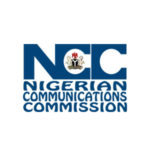Access to digital technology has become a cornerstone of modern development, impacting education, health, commerce, and governance. Yet, in Nigeria, millions remain disconnected from this transformative resource. The digital divide where urban areas flourish with internet access while rural communities are left behind exacerbates economic and social inequality. Bridging this gap is not only a technological challenge but also an economic, moral and political imperative for Nigeria’s future.
Nigeria, Africa’s largest economy, boasts a dynamic tech ecosystem often celebrated as the “Silicon Valley of Africa”. However, this innovation boom masks glaring disparities in access to digital infrastructure. According to the Nigerian Communications Commission (NCC), internet penetration reached 48 per cent in 2023. Yet rural areas and underserved communities remain far below this average.
This disparity is deeply consequential. Farmers, who form the backbone of Nigeria’s economy, are often excluded from real-time market information, weather updates, and innovative farming techniques accessible online. Small businesses in rural areas struggle to compete, as they lack access to digital payment systems and e-commerce platforms that drive economic growth elsewhere. Meanwhile, students in underserved schools face a profound disadvantage, unable to tap into the wealth of educational resources available online.
The potential economic benefits of closing this gap are immense. Research shows that a 10 per cent increase in broadband penetration can lead to a 1.5 per cent boost in GDP. By extending internet access to more Nigerians, particularly in rural areas, the government could stimulate growth in key sectors like agriculture, education, and entrepreneurship. Imagine a farmer using a smartphone to monitor market prices or weather conditions, significantly improving productivity and income. Consider a small business owner in a remote village expanding their reach globally through digital marketplaces. These are the transformative possibilities that come with bridging the divide.
- Tinubu in power but not in govt – SDP Presidential candidate
- Court dismisses Emefiele’s application challenging jurisdiction
Digital access, however, is just one side of the coin. Without the skills to utilise online tools effectively, connectivity alone will not suffice. In many rural communities, even when basic internet infrastructure exists, the lack of digital literacy creates a barrier to economic participation. Addressing this issue requires targeted training programmes to teach fundamental digital skills, including online safety, e-commerce, and basic computer operations. Such initiatives can empower citizens to make the most of digital tools and unlock their potential for innovation and productivity.
Beyond the economy, the digital divide also hinders governance. E-governance platforms, designed to streamline services and enhance transparency, remain inaccessible to millions of Nigerians without internet access. For example, rural residents often face difficulties in obtaining vital government services such as national ID registration or business licensing. Bridging the digital divide would make these processes more inclusive and efficient, fostering trust in public institutions and enhancing democratic participation.
Efforts to bridge the digital divide face several obstacles. Many rural areas lack basic infrastructure, such as cell towers and broadband networks, necessary for internet connectivity. For low-income households, smartphones, laptops, and data plans remain prohibitively expensive.
Bureaucratic inefficiencies and inconsistent policies have slowed the rollout of digital infrastructure projects in underserved regions. Meanwhile, rural regions are often neglected by tech companies due to perceived lower profitability.
Overcoming these challenges requires a collaborative, multi-stakeholder approach. The government must prioritize expanding broadband networks and renewable energy solutions to power connectivity in off-grid areas. Full implementation of the National Broadband Plan is essential to achieving this goal. Partnerships between the government, telecom companies, and international organisations can accelerate the deployment of affordable internet services in rural areas. Providing financial assistance for smartphones, laptops, and data plans can make digital access more affordable for low-income households. Establishing community training centres, in collaboration with NGOs and educational institutions, can teach digital skills in underserved regions. Streamlining regulatory processes and offering incentives for private companies to invest in rural connectivity can speed up progress. User-friendly e-governance platforms must be designed to ensure inclusivity and accessibility for all citizens.
Failing to address the digital divide risks deepening existing inequalities. In a world increasingly driven by technology, Nigeria cannot afford to leave a significant portion of its population behind. The cost is not just economic but social, as the excluded face limited opportunities for education, health, and civic participation.
Conversely, by investing in digital infrastructure, promoting digital literacy, and fostering collaboration across sectors, Nigeria can unlock a future of inclusive growth. The country’s large youth population, often described as its greatest asset, can be transformed into a globally competitive workforce equipped with skills in artificial intelligence, data science, and software development.
Bridging Nigeria’s digital divide is more than a policy goal; it is a necessity for building a fair and equitable society. It is about giving every Nigerian the tools to thrive, regardless of geography or income level. Policymakers, private sector leaders, and civil society must prioritize this effort, recognizing that a connected Nigeria is a stronger, more inclusive Nigeria. The time to act is now. The digital divide is not just about connectivity, it is about opportunity, empowerment, and the promise of a brighter future for all Nigerians.
Mustapha, a youth corps member, resides in Abuja

 Join Daily Trust WhatsApp Community For Quick Access To News and Happenings Around You.
Join Daily Trust WhatsApp Community For Quick Access To News and Happenings Around You.

